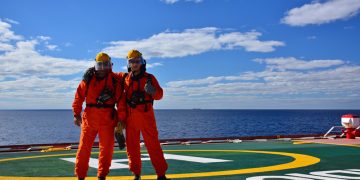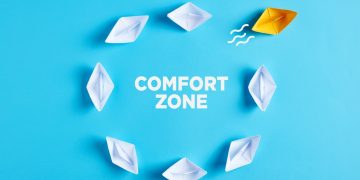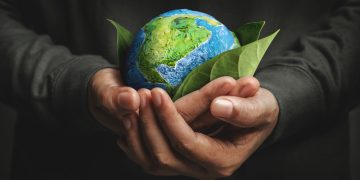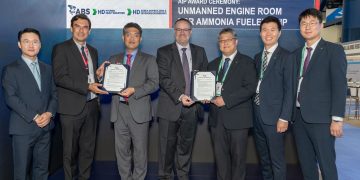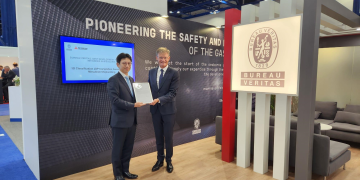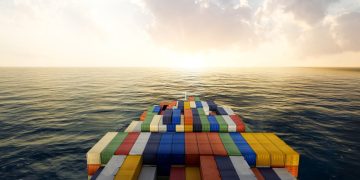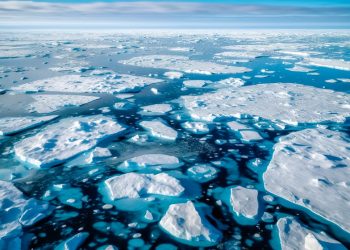Take a look around. Chances are your laptop, your desk, your clothes, your TV, your fridge, your car, and the avocado you eat were all brought to you by sea. While shipping’s ability to offer economic and long-distance transport of goods puts it at the forefront of world economy, it is impressive how little most people think about how they have got everything they own.
If one thing characterizes shipping as an industry is its inability to communicate the essence of its existence to the wider public. Despite accounting for about 80% of globally transported goods, the importance of ocean transportation becomes evident only in cases of serious disruptions, like the Suez Canal incident in March 2021.
[smlsubform prepend=”GET THE SAFETY4SEA IN YOUR INBOX!” showname=false emailtxt=”” emailholder=”Enter your email address” showsubmit=true submittxt=”Submit” jsthanks=false thankyou=”Thank you for subscribing to our mailing list”]
Without shipping, people would be left without most of their basic everyday necessities and some countries would find it difficult to even survive. “If the world is the heart, ships are the arteries”, said BIMCO in a video published in early 2021 aiming to address a lack of awareness of the maritime sector:
Without shipping, life would be different. We would have limited access to a lot of the food we consume, pharmaceuticals, clothes and consumer goods…Around 1.7 million seafarers make it possible every day. Because of them, and the over 61,000 ships we are served by, we do not run out of what we need
Interesting numbers
- The sea covers 70% of the planet
- 90% of the world’s goods are delivered by sea
- There is a total of 7 million seafarers worldwide
- 61,000 ships ply the world’s seas globally
- There are 6,000 ports in the world
- Some 11 billion tons of goods are transported by ship each year, accounting for 5 billion tons per person worldwide
- As of January 2021, global shipping capacity was equivalent to 13 billion dead weight tons (dwt)
- Bulk carriers account for almost 43% of world’s dwt, oil tankers for 29% and container ships for about 13%
- Nearly 60% of food miles are transported by sea, while only 0.16% by air travel.
- A large cargo ship can carry loads of 740 million bananas in 15,000 containers on a single trip.
The benefits of food shipment
The shipping industry transports nearly 2 billion tons of crude oil, 1 billion tons of iron ore (the raw material needed to create steel), and 350 million tons of grain every year, according to data provided by ICS, shipments that would not be possible by road, rail or air. The more impressive part is that shipping has also developed highly sophisticated logistics chains delivering just-in-time parts and goods to manufacturers and consumers. For example, avocados are shipped from Chile to arrive in Europe just as they ripen.
Except for this, shipping also offers the cheapest mode of transport per ton: sea transport contributes just 0.3p to the £2.50 cost of a cup of coffee and 20p to the £5 cost of a bottle of wine. In addition, shipping food leaves a smaller environmental footprint compared to air transport. Transporting food by air emits around 50 times as much GHG emissions as transporting the same amount by sea.
For food that is transported by sea, transportation doesn’t actually add much to the carbon footprint. Since most of our food is transported by sea, transport emissions only account for 6% of the carbon footprint of food, on average
…explains a dedicated post by Hannah Ritchie in Our World in Data portal.
Key challenges regarding food shipment
As expected, the food industry has strict shipment and sanitation guidelines to follow before they can transport food items. The regulatory framework regarding the use of containers requires companies to use “food grade” containers. To be considered food grade, the container must be new when the company procures it.
The top challenge when transporting food by sea is the transit time which could significantly affect food quality. When it is about fresh or perishable foods like fruits and vegetables, ocean transportation requires strict monitoring of air flow and temperature. Such sensitive aliments get transferred in special refrigerated (reefer) containers. Food generally transported on reefer ships are fruits, fish, milk products and meat.
In many cases, seafarers have to check the containers several times a day during the voyage to make sure that temperature works as planned. To honor the contribution of seafarers to the world, the shipping industry has established celebration of International Day of the Seafarer every year on June 25. So next time we sit at the table, let’s take a moment to appreciate how shipping and seafarers keep the world going!
A glance of history
- The earliest documented ships were built by the ancient Egyptians, during the 4th millennium BCE and sailed on the Nile River. The Egyptian boats commonly featured sails as well as oars.
- Food items such as olives, honey, spices, were important part of the cargo manifests of the Phoenician trading network in the Mediterranean Sea and beyond.
After the 15th century, new crops that had come from and to the Americas via the European seafarers significantly contributed to the world population growth. Ships regularly carried from America new food products like cocoa and corn, as well as grains and other staples, to help feed the population of Europe.
“Ships make the world go, they help trade flow and let business grow.”
-BIMCO








